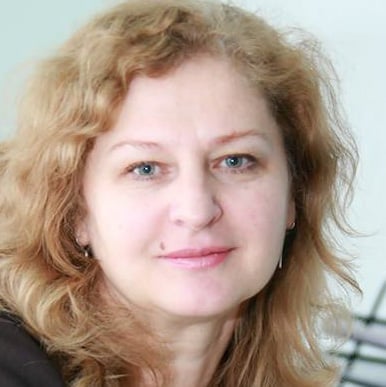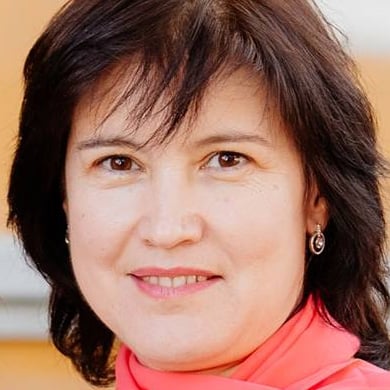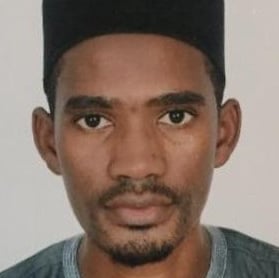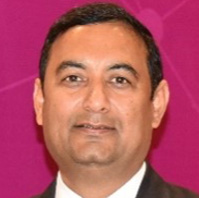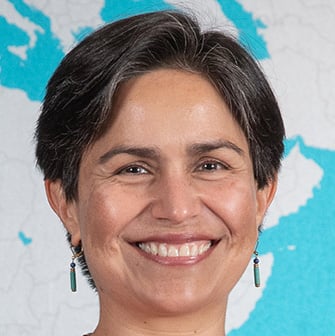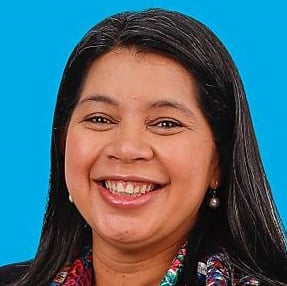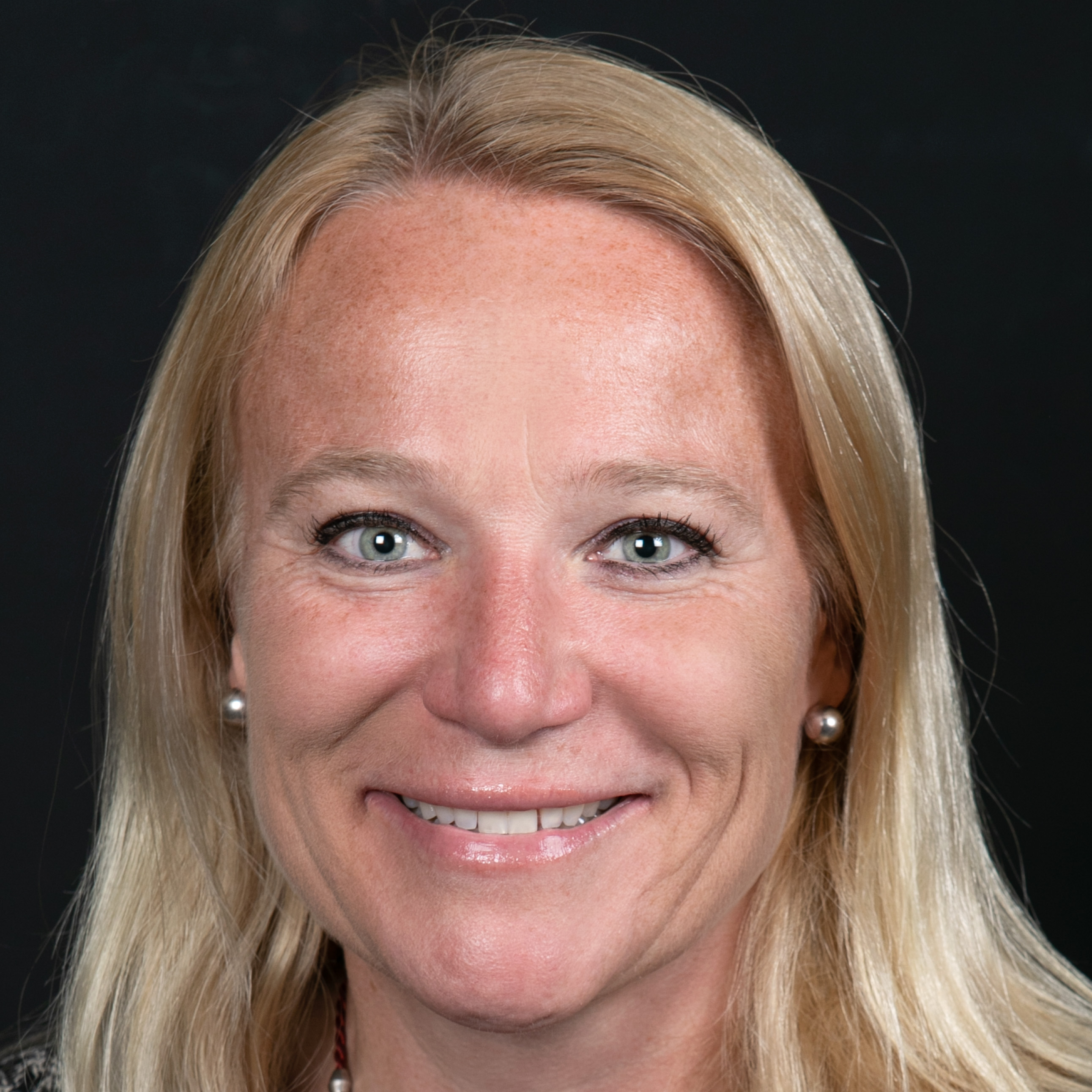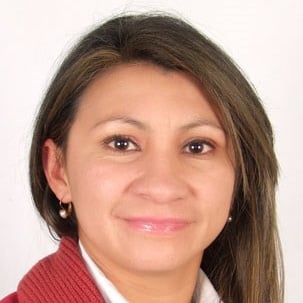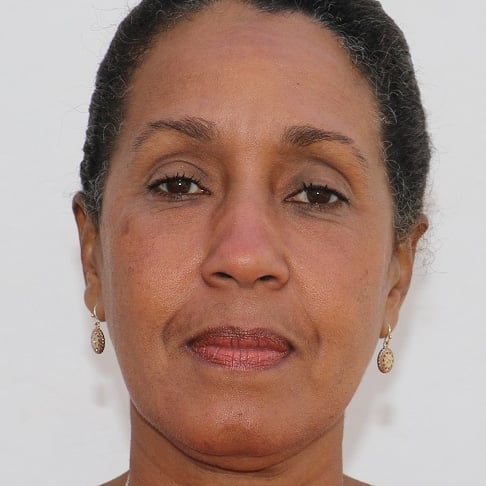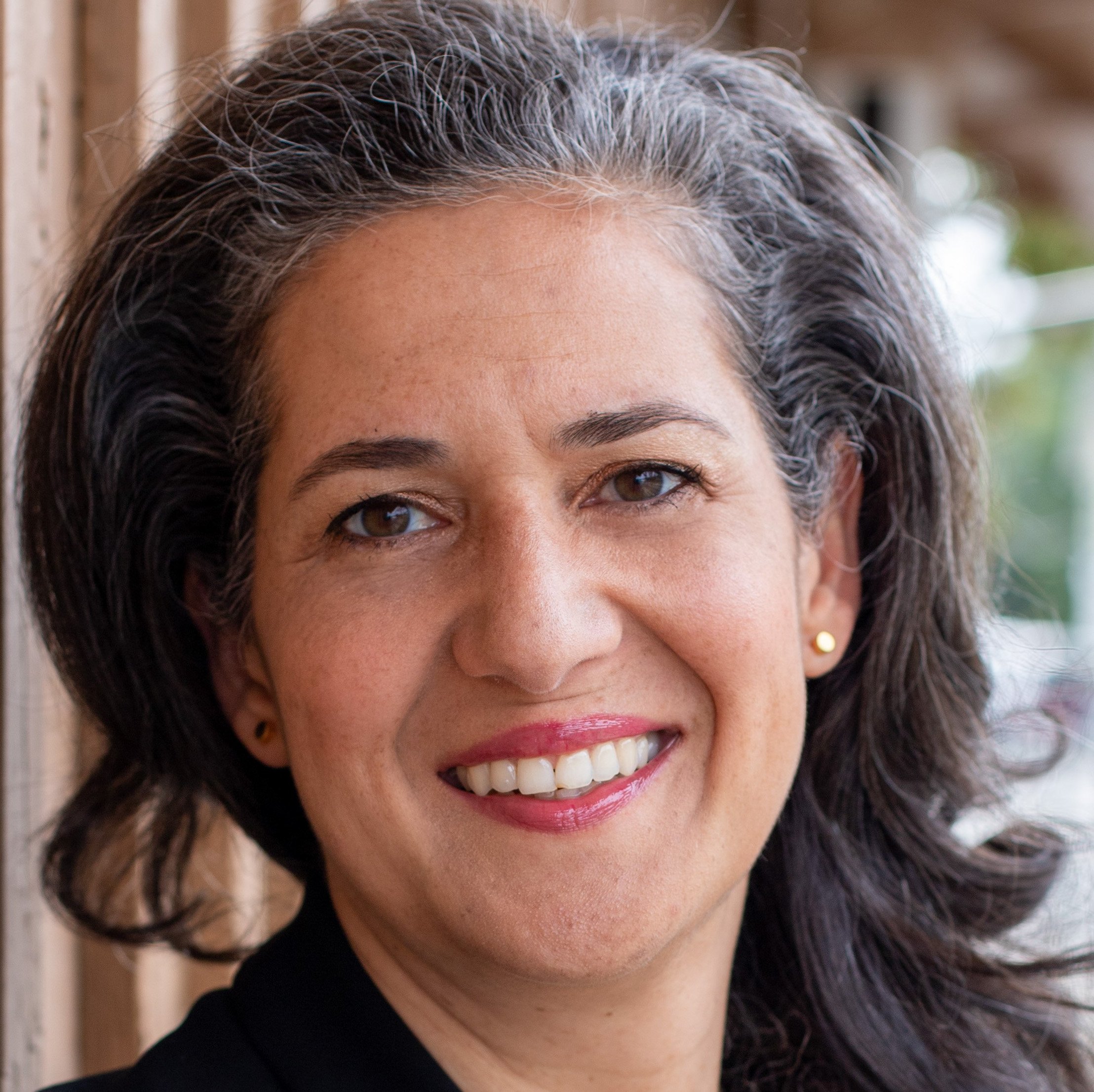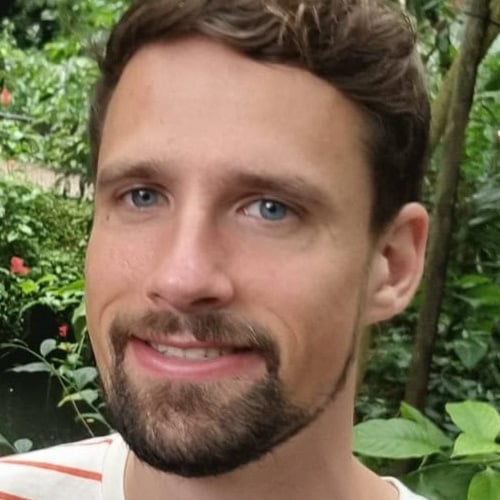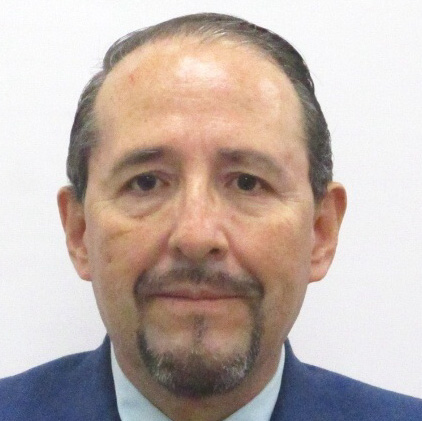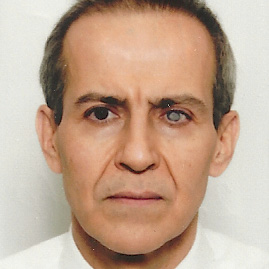
The 17th TechNet Conference took place at the Sheraton Grand Panama Hotel in Panama City, Panama from October 16 to 19, 2023. Recordings of all plenary and some breakout sessions are available in English, French, Spanish and Portuguese. Slides for all sessions are also available. Refer to the Day-by-day agenda for details.

For more information on the TechNet Conference, inlcuding plans for future TechNet Conferences, please subscribe to the Weekly Digest (requires TechNet account) or follow TechNet-21 on Twitter, on LinkedIn, or on Telegram. If you do not yet have a TechNet account, please sign up here. For all enquiries regarding the TechNet Conference, please contact
Day-by-day agenda
Monday, October 16

| 16:00-18:00 EST (UTC -5) |
Plenary: Immunization Programs That Leave No One Behind Chair: Souleymane Kone (WHO headquarters) | |
|---|---|---|
| View slides Watch video |
Welcome |
Souleymane Kone (WHO headquarters) |
| View slides Watch video |
Opening remarks |
Ana Rivière-Cinnamond (PAHO Representative, Panama) Jarbas Barbosa (Director, PAHO) Kate O’Brien (IVB Director, WHO headquarters) Garry Conille (Director, UNICEF LACRO) Melva Cruz (General Director of Public Health, Panama) |
| View slides Watch video |
Immunization Programs That Leave No One Behind Perspectives from global partners on the challenge, progress, and opportunity of implementing the IA2030 global strategy to Leave No One Behind. |
Chair: Nora Rodriguez (PAHO) Ann Lindstrand (EPI Coordinator, WHO headquarters) Olamide Folorunso (Health Specialist, UNICEF Programme Group) Karan Sagar (Head, Comprehensive Vaccine Management, Gavi) Kelly Hamblin (Senior Program Officer, Immunization, Bill & Melinda Gates Foundation) Daniel Salas (Executive Manager, Comprehensive Immunization Program, PAHO) |
| View slides Watch video |
Environmentally-sustainable interventions for strengthening PHC infrastructure and mitigating carbon emissions Production of vaccines, cold chain and supplies, transportation and delivering of the vaccines to the last mile has a strong carbon footprint! What is our carbon footprint to deliver immunization program globally? What should we do to reduce and mitigate the carbon footprint? UNICEF investigates these questions, join us to learn more! |
Ranjit Dhiman (UNICEF Programme Group) |
| View slides Watch video |
Making the most out of the TechNet Conference Everything you need to know about the TechNet Conference in less than 15 minutes |
Dan Brigden (WHO headquarters) |
Tuesday, October 17

| 09:00-10:15 EST (UTC -5) |
Plenary: Gender & zero-dose populations Chair: Ashvin Ashok (CHAI) | |
|---|---|---|
| View slides Watch video |
Why gender matters for equity in immunization Gender-related barriers and inequality hinder vaccination. To improve immunization rates, we must consider gender roles and norms in service planning. Gender affects both demand (health-seeking behavior) and supply (health services). By using gender-aware strategies, we can enhance immunization programs and broaden coverage for everyone. |
Ann Lindstrand (WHO headquarters) |
| View slides Watch video |
Zero-dose populations: Who are they and how do we reach them? This session presents strategies for identifying and reaching zero-dose children and enhancing immunization coverage. The presentations will examine gender and demand-side barriers to improve equity in immunization and present approaches used to identify and reach zero dose children in Cameroon and Nigeria. |
Chair: Ashvin Ashok (CHAI) Meghana Sreevatsava (Jhpiego) Yauba Saidu (CHAI) Elena Herrera (JSI) Pijush Kanti Khan (International Institute of Health Management Research) |
| 10:45-11:35 EST (UTC -5) |
Breakouts | |
|---|---|---|
| View slides Watch video |
Integrated services for greater reach This session discusses the potential of integrated services to address equity challenges. The session will present results from a study in Madagascar which identified integration of immunization and nutrition services as crucial, particularly in regions with existing food security programs. In addition, the session will also discuss the case of Lebanon which successfully deployed an integrated strategy to effectively demonstrate that while the child and family is being reached for immunization, the same platform can be a gateway to connect with other primary healthcare services and beyond. |
Mod: Ashvin Ashok (CHAI) Bhrigu Kapuria (UNICEF Lebanon) Chizoba Wonodi (Johns Hopkins University) |
| View slides |
Reaching hard-to-reach/remote populations - applying lessons from COVID and routine immunization This session will highlight learnings from engaging communities for improving COVID-19 vaccinations for inmates in Nigeria and older persons in Kenya as well as strengthening routine immunizations for beach populations in Kenya and the role of data and supply chain in Guyana on reaching vulnerable populations. |
Mod: Mariam Zameer (VillageReach) Ugo Uwadiako Enebeli (JSI) Vicky Maiyo (JSI) Delroy Pyle (Guyana Ministry of Health) |
| View slides |
Community health workers & person-centered care: Key to increasing coverage and equity What is a CHWs role in promoting service demand, uptake, and quality? This panel will highlight the important role that Community Health Workers (CHWs) play in supporting immunization service delivery. Commentary and programmatic examples from VillageReach, CHAI, JSI and video-based commentary from a Malawi-based CHW will share perspectives from the field. |
Mod: Rebecca Alban (VillageReach) Gaspar Come (VillageReach) Tosin Ajayi (AI) Laure-Anais Zultak (CHAI) Jessica Posner (JSI) |
| 11:40-12:30 EST (UTC -5) |
Breakouts | |
|---|---|---|
| View slides Watch video |
Promoting equity through supply chain design Explore the multifaceted aspects of promoting equity through supply chain design. Delve into gender equity and social inclusion in supply chains, identifying and addressing supply chain equity barriers, increasing access through service network extension; And gain insights from a case study on human-cantered design to improve access and service delivery in Ghana. |
Mod: Raj Sachdev (CHAI) Lisa Oot (JSI) Nicole Danfakha (JSI) Mariam Zameer (VillageReach) Emily Gibson (VillageReach) |
| View slides |
Human-centered design and behavioural interventions to improve coverage This session will showcase three abstracts highlighting the power of human-centered design (HCD) and behavioural interventions to improve coverage. In Kenya, PATH’s collaboration with the National Vaccines and Immunization Program addressed vaccine demand, considering religious and cultural factors. In Malawi, a successful strategy, co-created with communities, substantially increased COVID-19 vaccine uptake. Lastly, Madagascar’s session will demonstrate how HCD was applied to address urban immunization challenges through collaboration with stakeholders. |
Mod: Tosin Ajayi (CHAI) Christopher Obong’o (PATH) Charles Matemba (VillageReach) Daniel Ali (Johns Hopkins University) |
| View slides |
HPV vaccine implementation and revitalisation The presentation outlines the Global Strategy for the Elimination of Cervical Cancer and the goal of achieving over 90% coverage in 9 to 14-year-old population. It reports on vaccination progress in the Americas and TAG’s recommendation for a one-dose HPV series in the Region, as well as available support from Gavi. |
Mod: Svetlana Stefanet (UNICEF ECARO) Joanie Robertson (PATH) Oya Zeren Afsar (UNICEF Programme Group) Angela Capcelea (UNICEF Moldova) Daniel Salas (WHO PAHO) |
| 14:00-14:50 EST (UTC -5) |
Breakouts | |
|---|---|---|
| View slides Watch video |
Service delivery integration This session will focus on findings from interventions implemented in Nigeria and Cameroon to assess or demonstrate the impact of service delivery integration at the primary health care level. The service delivery integration focused on specific primary health care services, especially immunization and delivery services. |
Mod: Pat Lennon (PATH) Salisu Sulaiman (CHAI) Tijjani Hussaini (Nigeria Ministry of Health) Nadege Edwige Nnang Amougou (CHAI) |
| View slides |
Continuous improvement planning - The Journey and the Destination While the EVM initiative was conceptualized as a critical continuous improvement approach to strengthening immunization supply chain programmes, there’s a disproportionate focus on the assessment phase-manifesting in delayed or no cIPs development, lack of monitoring of improvement activities’ implementation cIPs and very limited visibility on progress. The session will introduce initiatives from countries, regional, and global levels to ensure that countries effectively develop cIPs in a timely fashion, monitor implementation and position to contribute better to health and development outcomes. |
Mod: Olamide Folorunso (UNICEF Programme Group) Landry Kaucley (Benin Ministry of Health) Monjurul Islam (Bangladesh Ministry of Health) Jahid Hossen Shahed (UNICEF) Ishaku Yoms (Nigeria Ministry of Health) Ahmad Isah Muhammad (UNICEF Nigeria) Ridwan Gustiana (UNICEF EAPRO) Claude Mangobo (WHO AFRO) |
| View slides |
Innovative access Panel and Q&A focused on innovative strategies to address immunization access barriers. Strategies include leveraging community health workers as vaccinators; direct delivery of routine immunization vaccines and other PHC commodities (DRIVE); strategies for vaccination in security compromised settings; “market storms”; and leveraging community role models and community vaccination sessions. |
Mod: Kim Couri (VillageReach) Emily Gibson (VillageReach) Yakubu Joel Cherima (JSI) Gopal Krishna Soni (JSI) Olamide Folorunso (UNICEF Programme Group) |
| 14:55-15:45 EST (UTC -5) |
Breakouts | |
|---|---|---|
| View slides Watch video |
Online training: approaches and pitfalls Speakers from WHO, Sabin Vaccine Institute, UNICEF Guatemala, and JSI India will provide an overview of online training solutions that were created for self- and peer-to-peer learning on immunization topics. They will share lessons learned from the development and implementation of those solutions in Guatemala, India and globally. |
Mod: Manjari Quintanar-Solares (PATH) Elizabeth Kohlway (Sabin Vaccine Institute) Jhilmil Bahl (WHO headquarters) Cecilia de Bustos (UNICEF Guatemala) Vivian Salomon Pineda (UNICEF Guatemala) Sanjay Kapur (JSI) |
| View slides |
Leveraging micro-array patch (MAP) technology for vaccine delivery Microarray patches are a promising new innovation for administering vaccines to the skin which hold potential to transform delivery of vaccines. This session will discuss recent advances in MAP development, the potential cost impact of MAPs for immunization programs, and usability data from healthcare workers and community health workers in Kenya. |
Mod: Anna-Lea Kahn (WHO headquarters) Courtney Jarrahian (PATH) Mercy Mvundura (PATH) Jennifer Foster (PATH) Shan Hsu (PATH) |
| View slides |
Innovative approaches to improve birthdose coverage Many children do not receive birth dose vaccines, even when born in health facilities. Research from IVAC and CHAI in Cameroon, Madagascar, and Nigeria uncovers some of the barriers and challenges of this critical touchpoint in the continuum of care, and they highlight possible solutions emerging directly from health workers. |
Mod: Joanie Robertson (PATH) Tosin Ajayi (CHAI) Nadege Edwige Nnang Amougou (CHAI) Brooke Farrenkopf (Johns Hopkins University) |
| 16:15-18:00 EST (UTC -5) |
Plenary: Vaccine wastage & workforce development Chair: Souleymane Kone (WHO headquarters) | |
|---|---|---|
| View slides Watch video |
What do we know about global vaccine wastage rates? The World Health Organization reports over 50% vaccine wastage around the world (WHO, 2005) but there is insufficient empirical evidence to confirm or refute this claim. We will present the initial findings from two separate studies on this topic. The first measures global vaccine wastage rates using JRF and MI4A data, while the second measures nOPV2 campaign wastage rates. |
Chair: Souleymane Kone (WHO headquarters) Paul Colrain (consultant) Ahmet Afsar (UNICEF Programme Group) |
| View slides Watch video |
Workforce Development Presenters from CHAI, UNICEF/People that Deliver, VillageReach, and WHO share lessons learned from initiatives focused on developing the workforce. Approaches include utilizing adult training methods, garnering government recognition, improving supply chain educational pathways for youth, fostering collaboration across organizations and sectors, improving remuneration and other recognition, and instigating better diagnostics for training needs. |
Chair: Joanie Robertson (PATH) Jhilmil Bahl (WHO headquarters) Dominique Zwinkels (UNICEF Supply Division) Kikelomo Lambo (CHAI) Rebecca Alban (VillageReach) Kevin Etter (UNICEF Programme Group) |
| View slides Watch video |
The Power of the Network Find out how the new TechNet platform, as well as other online immunization communities, can benefit and support your work. |
Dan Brigden (WHO headquarters) |
Wednesday, October 18

| 09:00-10:15 EST (UTC -5) |
Plenary: Cold chain equipment Chair: Wendy Prosser (JSI) | |
|---|---|---|
| View slides Watch video |
WHO PQS: First line of defense for the immunization supply chain The WHO Performance, Quality and Safety (PQS) Unit based in the WHO HQ in Geneva prequalifies products and devices so that member states and UN purchasing agencies are assured of their suitability for use in immunization programs. The PQS process also encourages a wide range of manufacturers to apply for prequalification so that a competitive marketplace develops. |
Isaac Gobina (WHO headquarters) Paul Mallins (WHO headquarters) |
| View slides Watch video |
Keeping your cold chain cold: A focus on temperature monitoring Remote temperature monitoring is bringing new insight into cold chain performance. Learn about RTM deployment in Tanzania, Kenya and Senegal, and the practical application of how to use the data for improved decision making. You will also learn about the future of temperature monitoring and how we collectively can optimize temperature data. |
Chair: Wendy Prosser (JSI) Mtoroki Majaliwa (Tanzania Ministry of Health) Amy Lo N’diaye (Senegal Ministry of Health) Souleymane Sawadogo (Parsyl Inc) Yasmin Chandani (inSupply Health) Brian Pal (Global Health Labs) |
| 10:45-11:35 EST (UTC -5) |
Breakouts | |
|---|---|---|
| View slides Watch video |
Cold chain challenges and solutions (Spanish) This session was held in Spanish, with interpretation in English, French and Portuguese provided. The requirements for storing vaccines at ULT, such as Covid-19 vaccines, the cold chain becomes a fundamental piece to guarantee the quality of vaccines. The use of technology and information systems, storage capacity was optimized. The introduction of all Covid-19 vaccines strengthened the management operations of the cold chain and supply chain, including the routine program. |
Mod: Nora Rodriguez (WHO PAHO) Alejandro Rene Ortega Amador (Nicaragua Ministry of Health) Claudia Liliana Sosa Mesa (Colombia Ministry of Health) Lena López Ambrón (Cuba Ministry of Health) Alina Pérez Carreras (WHO Cuba) |
| View slides |
Forecasting and demand - Nigeria and Mozambique case studies Methods and challenges for forecasting routine and COVID-19 vaccines for both the public and private sectors in low and middle-income countries will be shared through two case study examples. |
Mod: Laila Akhlaghi (JSI) Kikelomo Lambo (CHAI) |
| View slides |
Thinking outside the cold box: Finding solutions to your cold chain maintenance Participants are invited to get creative and contribute their ideas for solutions to making cold chain maintenance systems more effective and reliable. Learn about insights from research and practical experiences with maintenance from Uganda, Nigeria and Niger, and then be part of a “co-creation workshop” to brainstorm potential solutions for your maintenance system. |
Mod: Nicole Danfakha (JSI) Christine Lanyero (Uganda Ministry of Health) Ernest Some (Kenya Ministry of Health) Paul Sagyiri (Uganda Ministry of Health) Wendy Prosser (JSI) Nicole Danfakha (JSI) Julia Guerette (VillageReach) Joanie Robertson (PATH) Tahir Buhari (eHealth Africa) |
| 11:40-12:30 EST (UTC -5) |
Breakouts | |
|---|---|---|
| View slides Watch video |
Innovations for immunization: Solarization, freeze prevention and lifecycle assessment Learn about advances in technology in multiple areas: freeze prevention cold boxes for vaccines from a study in Nepal; experience using cool water packs in Cameroon; and discuss the environmental impact and lifecycle assessments of syringes to inform procurement and product choices. |
Mod: Isaac Gobina (WHO headquarters) Steven Diesburg (PATH) Sandeep Kumar (PATH) Nadege Edwige Nnang Amougou (CHAI) Surendra Uranw (BP Koirala Institute of Health Sciences) |
| View slides |
Strengthening routine immunization in the wake of Covid-19 This session will cover research findings and interventions being implemented across 7 countries to strengthen routine immunization systems in response to the backslide in immunization coverage resulting from the COVID-19 pandemic. The discussion will focus on topics including improved outreach services and community-centered approaches to research and implementation. |
Mod: Kim Couri (VillageReach) Dung Chi Tham (PATH) Jocelyn Powelson (VillageReach) Mike Chisema (Malawi Ministry of Health) Tosin Ajayi (CHAI) Laure-Anais Zultak (CHAI) |
| View slides |
Controlled temperature chain (CTC) - New opportunities and reducing risk Speakers from Gavi, PATH and WHO will present an update on controlled temperature chain, an innovative approach prioritized by the Vaccine Innovation Prioritisation Strategy (VIPS). We will share case studies from country experience with CTC, update the prequalified vaccines available, and engage the audience in an interactive game to demonstrate the CTC experience. |
Mod: Joanie Robertson (PATH) Anna-Lea Kahn (WHO headquarters) Sharvani Saraf (Gavi) |
| 14:00-14:50 EST (UTC -5) |
Breakouts | |
|---|---|---|
| View slides Watch video |
Tools and platforms that support selection, access, and service strategies During this session two WHO country-led approaches developed as part of the Country-led Assessment for Prioritisation on Immunisation (CAPACITI) project will be presented that are grounded in shared principles. Firstly, the CAPACITI Innovation Framework for priority setting of vaccine innovations. Secondly, the CAPACITI decision-support tool for priority setting of available vaccines. |
Mod: Zabihullah Kamran (UNICEF Programme Group) Maarten Jansen (WHO headquarters) Dijana Spasenoska (WHO headquarters) |
| View slides |
How we deliver vaccines into arms - Syringes, devices, packaging considerations This session will include three presentations on immunization product design and suitability, and their program, supply chain, and market challenges. Products to be discussed as multi-dose vials, prefilled and non-prefilled devices, and Autodisable (AD) syringes during COVID-19. |
Mod: Laila Akhlaghi (JSI) Heather Ferguson (Linksbridge SPC) Maggie Archbold (Sassenach) Manjari Quintanar-Solares (PATH) Elizabeth Griffin (PATH) |
| View slides |
Vaccines up in the air - Transport by drone and traditional air freight In the wake of the Covid-19 pandemic, supply chains responsiveness and resiliency became a priority in global health. To that end, health supply chains must levrage all tools in the box to ensuring timely access to life- saving medicines and healthcare. Vaccine air transportation, both using traditional air transport and uncrewed aircraft systems, has expanded in regions with reduced accessibility, improving and shortening availability and access of the vaccines in these regions. During this session, we will look at the impact of Air-travel logistics using traditional and uncrewed aircrafts on access and availability of vaccines. |
Mod: Modibo Dicko (The Balanzan Institute) Jeniffer Adungosi (CHAI) Olivier Defawe (VillageReach) |
| 14:55-15:45 EST (UTC -5) |
Breakouts | |
|---|---|---|
| View slides Watch video |
Local manufacturing This session will include PAHO Revolving Fund discussing the importance of sustainable business cases for local production of immunization-related supplies given financial constraints; a second presentation will share an example of a conceptual and quantitative model of vaccine manufacturing ecosystems that support stakeholders at regional and national levels with making decisions for sustainable and equitable vaccine manufacturing. |
Mod: Thomas Sorensen (UNICEF Supply Division) Murat Hakan Ozturk (WHO PAHO) Oscar Vargas (WHO PAHO) Nico Vandaele (KU Leuven Access-To-Medicines Research Centre) |
| View slides |
Managing your cold chain inventory: Innovations to make your life easier New tools for managing CCE inventory have been rolled out in multiple countries. Learn about the experiences and lessons learned from Guatemala with the “Inventory System and Cold Chain Capacity”; from Uganda with the Cold Chain Inventory System; and from the WHO European region using the web platform Inventory Gap Analysis. |
Mod: Matt Morio (PATH) Cecilia de Bustos (UNICEF Guatemala) Vivian Salomon Pineda (UNICEF Guatemala) Erida Nelaj (WHO EURO) Christine Lanyero (MOH Uganda) Irakli Gabisonia (Georgia Ministry of Health) |
| View slides |
Procurement and longevity of cold-chain equipment Learn about new innovations related to CCE management. Lao PDR managed a country-led service bundle implementation of CCEOP. Nexleaf will provide insight into barriers impacting the performance of the CCE from using temperature data. And finally, think differently about CCE management through a lease-type delivery model for long-term sustainability and CCE functionality. |
Mod: Wendy Prosser (JSI) Mohammed Pangani (Nexleaf Analytics) Phonepaseuth Ounaphom (Laos Ministry of Health) |
| 16:15-18:00 EST (UTC -5) |
Plenary: Electronic immunization registries, Private-sector engagement, and vaccine financing Chair: Joanie Robertson (PATH) | |
|---|---|---|
| View slides Watch video |
Electronic immunization registries: Progress in the Region of the Americas The aim is to present the progress of the Region of the Americas regarding the implementation of Electronic Immunization Registries. The EIR are computerized nominal records and are part of the immunization information system; the vaccination of each person is identified and facilitate active follow-up, supporting the planning of those who should be vaccinated and monitoring the non-attendees. |
Marcela Contreras (WHO PAHO) |
| View slides Watch video |
Private-sector engagement: leveraging partnership to increase reach Evidence on good practice in engaging private providers (for-profit and non-profit) to deliver immunization services will be presented. This consolidation of reviews and publications from the past 25 years was carried out by USAID’s MOMENTUM Private Healthcare Delivery initiative. This opens the way for future work to update global guidance. |
Chair: Joanie Robertson (PATH) Christopher Morgan (Jhpiego) |
| View slides Watch video |
Vaccine financing This session will start with UNICEF sharing an ongoing programme of work on assessing and quantifying the problem of sustainable financing for traditional vaccines as well as proposed solutions. PAHO will next discuss how financially neglected immunization supply chains can be prioritized with appropriate budgeting and financial solutions. Finally, CHAI will discuss how Nigeria successfully increased domestic allocation for vaccine financing as it entered Gavi’s accelerated transition. |
Chair: Laila Akhlaghi (JSI) Ulla Griffiths (UNICEF Programme Group) Murat Hakan Ozturk (WHO PAHO) Oscar Vargas (WHO PAHO) Kikelomo Lambo (CHAI) |
Thursday, October 19

| 09:00-09:50 EST (UTC -5) |
Breakouts | |
|---|---|---|
| View slides Watch video |
Increasing stock visibility for improved decision making and access to health Work conducted by eHealth Africa in Nigeria, and by MMGH and Bocconi in collaboration with local partners in Guinea, Honduras, Rwanda, and Tanzania has shown that using electronic tools to increase vaccine stocks visibility helps reduce stockouts, ensure access to services, and raise coverage. Solutions are needed to increase government ownership and strengthen infrastructure to ensure sustainability. |
Mod: Pat Lennon (PATH) Mohammed-Faosy Adeniran (eHealth Africa) Stefano Malvolti (MMGH Consulting) |
| View slides |
Advances in vaccine barcoding Barcodes increase efficiency of supply chains and enable overall visibility into vaccines in real-time. This session will explore barcodes advancements in LMICs – learn about the use cases for implementation, understand what is being done to accelerate implementation, hear examples of barcode use from countries, and glimpse into the future of verification. |
Mod: Matt Morio (PATH) Pierre Dane (Vital Wave) Edward Wilson (JSI) Sharvani Saraf (Gavi) Malick Sogur (The Gambia Ministry of Health) Modou Njie (The Gambia Ministry of Health) |
| View slides |
Keys to vaccine stock availability - New findings on vaccine waste and public finance This session explores two immunization program aspects impacting vaccine availability. Evidence on vaccine wastage is presented, with recommendations on improvements to reduce wastage. Comparisons are made between vaccine stock-out data from Thrive360 and WHO/UNICEF Joint Reporting Form, proposing a framework for analyzing links between stock-outs and public financial management. |
Mod: Mwenge Abrahams Mwanamwenge (GAVI) Joanie Robertson (PATH) Mercy Mvundura (PATH) Julia Guerette (VillageReach) Ulla Griffiths (UNICEF Programme Group) |
| 10:00-10:50 EST (UTC -5) |
Breakouts | |
|---|---|---|
| View slides Watch video |
Strengthening the cold chain and lessons learned during the Covid-19 pandemic (Spanish) This session was held in Spanish, with interpretation in English, French and Portuguese provided. The introduction of new technologies for the storage, transportation and temperature traceability for Covid-19 vaccines required training of health staff, including the use of ULT equipment and updating CCE inventories at all levels. Underpinning cold chain and supply chain operations was the strengthening the information system for supporting technical and operational capacity. |
Mod: Nora Rodriguez (WHO PAHO) Thayssa Victer (Brazil Ministry of Health) Sandra Aparicio Fuentes (Colombia Ministry of Health) Juan Pablo Rodríguez Santana (Chile Ministry of Health) |
| View slides |
Supply chain integration Experts discuss integrated storage and supply chain management for temperature-sensitive health commodities. Learn about CHAI’s integration of oxytocin in Kenya and Uganda, and PATH’s recommendations for strengthening cold chain in PHC. Join the panel to uncover barriers and enablers for effective integration. |
Mod: Mariam Zameer (VillageReach) Raj Sachdev (CHAI) Joe Little (PATH) |
| View slides |
Reflections from the CCEOP and Covax Explores the achievements, challenges and lessons learned from programmatic implementation, procurement and market shaping efforts of the Gavi Alliance’s Cold Chain Equipment Optimisation Platform (CCEOP) and COVAX. Also looks at challenges around CCE inventory systems, maintenance, decommissioning, temperature monitoring and improving the sustainability of the full CCE ecosystem. |
Mod: Karan Sagar (Gavi) Karuna Luthra (Gavi) Thomas Sorensen (UNICEF Supply Division) Olamide Folorunso (UNICEF Programme Group) |
| 11:20-13:00 EST (UTC -5) |
Plenary: Immunization Programs That Leave No One Behind Chair: Olamide Folorunso (UNICEF Programme Group) | |
|---|---|---|
| View slides Watch video |
Are countries meeting the EVM standard? The session will provide insights into country immunization supply chain performance trends using the Effective Vaccine Management (EVM) scores from 2009 to 2023 (with the introduction of a mobile EVM application in 2019), making recommendations for improvements. The Effective Vaccine Management (EVM) is the global initiative through which immunization supply chain programme performance are assessed using standard criteria, bottlenecks are identified, and recommendations for improvement are developed and implemented. Launched in 2009, the initiative has long been a critical continuous improvement approach to strengthening immunization supply chains and contribute to better-performing health programmes. |
Chair: Souleymane Kone (WHO headquarters) Zainab Berry (consultant) Dan Brigden (WHO headquarters) Olamide Folorunso (UNICEF Programme Group) Paul Colrain (consultant) Modibo Dicko (The Balanzan Institute) |
| View slides Watch video |
Why develop a National Immunization Strategy? Strategic planning for immunization, in post Covid-19 pandemic with consecutive disruptions, is essential to define country’s priorities, objectives and interventions, estimate and advocate for resources, and align with national, regional and global strategies. This presentation on National Immunization Strategy highlights the importance of strategic planning and budgeting for immunization. |
Eric Laurent (UNICEF Programme Group) |
| View slides Watch video |
The digital transformation of immunization supply chains Digitalisation of supply chains has emerged as the next big tool to improve and transform supply chains. Different countries are at different levels of digital maturity but all of them offer valuable lessons from their digitalisation efforts. This session will churn out key trends and learnings for our journey ahead. |
Chair: Sachin Jagtap (Gavi) Abhimanyu Saxena (United Nations Development Programme) Stefano Malvoti (MMGH Consulting) |
| View slides Watch video |
Closing remarks |
Dan Brigden (WHO headquarters) Souleymane Kone (WHO headquarters) Nora Rodriguez (WHO PAHO) |




























